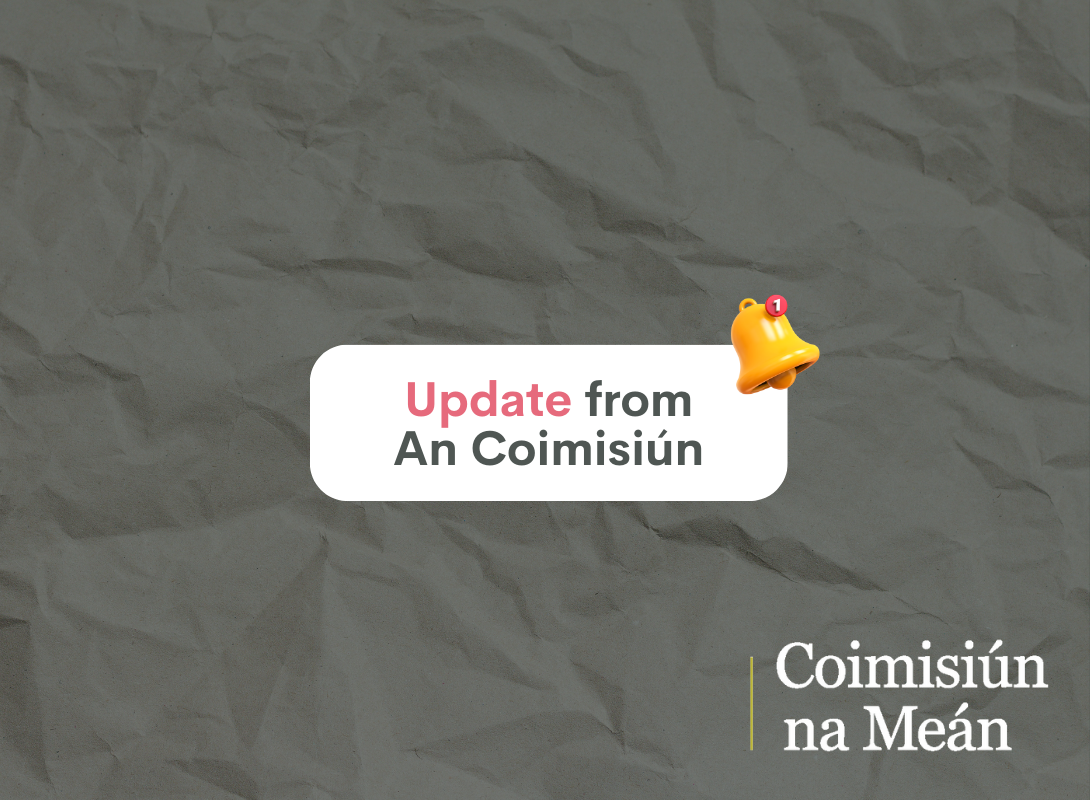Ireland’s new media regulator and media development agency, Coimisiún Na Meán has today (30.08.23) announced funding of €6.4m for broadcasters and independent producers under the Sound & Vision 4 Broadcasting Funding Scheme. The funding will be used to make high-quality programmes about Irish culture, heritage, and experience for broadcast on a range of national, local and community radio and TV services. A total of 35 radio projects and 22 TV projects have been successful in Round 49 of the scheme, following a competitive assessment process.
A total of 145 applications were received for this round of the scheme, seeking funding of just over €15.9m. The 57 successful projects have a total value of approximately €6.4m. This comprises funding of €543,000 to 35 radio projects and €5.86m to 22 TV projects. The proposed package of recommendations will facilitate the production of projects based on Irish culture, heritage and experience, across 20 community, commercial and public service broadcasters. The funding recommendations cover a wide range of genres and formats, supporting a diversity of content for Irish audiences. Some 40% of the funding supports the production of programmes in Irish/Bi-lingual.
Regarding format, 46% of the funding will go to documentaries, 22% to dramas, 16% to entertainment, and 16% to animation programmes. Children’s programming and contemporary society were the most popular genres recommended for funding (25% each), followed by History / Heritage (19%); Arts / Culture (15%); science / nature / environment (11%) and Media Literacy (3%). Of the projects recommended for funding, 52 will be produced by independent producers/production companies, amounting to approximately 98% of the total recommended funding.
Overall, there is good representation of women in the five lead creative roles across television applications being recommended for funding. Between 66% – 83% of the roles for producer, writer, and editor in the relevant funded projects will be filled by women. Director (30%) and Director of Photography (33%) roles continue to favour men.
Some notable projects funded in this round include:
- The Lost Children of Tuam: Produced by Element Films for RTÉ One, thisfeature dramafilm will tell the story of how Catherine Corless, an amateur historian, uncovered the truth about the Tuam Mother and Baby Home and how her campaign provoked a change in Ireland and beyond.
- Báite: Produced by Danú Media for TG4, this drama takes viewers back to thesummer of 1975, where Peggy Casey, owner of the local pub is fighting to keep her business and her family together. However, when a body is found in a nearby lake her hopes appear to be dashed. This programme was developed through the Cine4 scheme to develop original feature films in the Irish language.
- Maddie + Triggs: Produced by Turnip and Duck Ltd for RTÉjr, this animated series follows the adventures of a little girl called Maddie, who is vision-impaired, and her doggy best friend Triggs and their lives in the colourful town of Higgledy-Piggledy.
- Borders and Lies: Produced by Mind the Gap Films DAC for Virgin Media One, this documentary focuses on media literacy and anti-immigration protests in Ireland and the role played by social media. Using real-life stories and expert analysis, it will look at the challenges and opportunities of media literacy in a digital era.
- Untold Ireland: This documentary series to be produced by and broadcast on Newstalk FM will amplify the voices of sometimes marginalised communities from across Ireland, including members of migrant communities, the Traveller Community, people with disabilities and the LGBTQI community.
- Douglas Stories: Produced by Cork Community Television, this documentary series will see the older residents of the Cork suburb relating the stories of their lives there since the 1930s and how life has changed in that time.
Commenting, Media Development Commissioner Rónán Ó Domhnaill said: “The Sound & Vision scheme supports the development of culturally valuable broadcast content for Irish audiences that reflects and shapes Irish society. The volume of applications to this round of the scheme, coupled with the level of funding sought, shows the ongoing high demand for funding to produce such programming. We were delighted with the standard of applications received and believe that the projects recommended for funding will result in a diversity of high-quality content on Irish culture and heritage across community, commercial and public service broadcasters. Many of these will also be available online and on various players, further increasing their impact.”
The Sound & Vision scheme is funded through the television licence fee. A full list of the successful projects being offered funding for round 49 is available to download here.
ENDS
Media contact: Síona Cahill / Patricia Ryan, DHR Communications, Tel: 087-7530255 / 087-2412928.
All other queries: Coimisiún na Meán, 01-6441200.
Notes for Editors:
- Media Development Commissioner, Rónán Ó Domhnaill is available for interview, on request.
About Coimisiún na Meán:
Coimisiún na Meán is Ireland’s new commission for regulating broadcasters, on-demand services and online media, and supporting media development. Established in March 2023 under the Online Safety and Media Regulation Act 2022, it builds on the work of its predecessor, the Broadcasting Authority of Ireland. It is responsible for ensuring and maintaining a thriving and diverse media landscape in Ireland that facilitates a mix of voices, opinions and sources of news and current affairs, as well as a safe online environment.
Its responsibilities are to:
- Oversee the funding of and support the development of the wider media sector in Ireland.
- Oversee the regulation of broadcasting and video-on-demand services.
- Develop and enforce the Irish regulatory regime for online safety.



